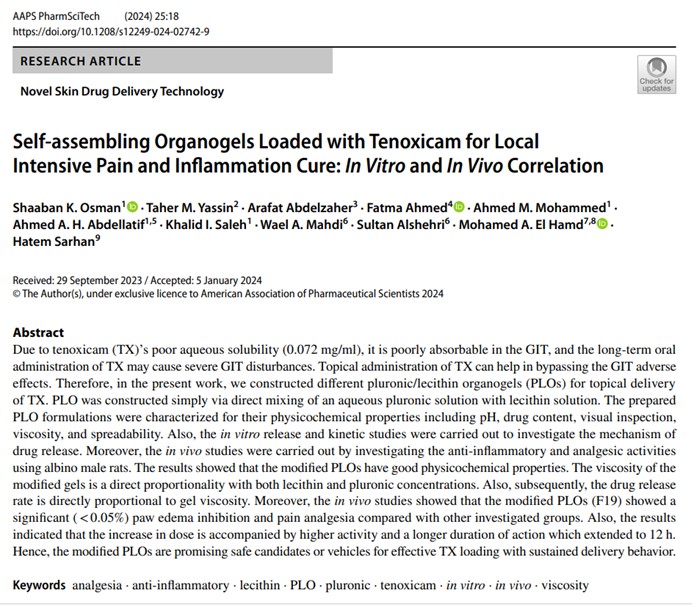Due to tenoxicam (TX)’s poor aqueous solubility (0.072 mg/ml), it is poorly absorbable in the GIT, and the long-term oral administration of TX may cause severe GIT disturbances. Topical administration of TX can help in bypassing the GIT adverse effects. Therefore, in the present work, we constructed different pluronic/lecithin organogels (PLOs) for topical delivery of TX. PLO was constructed simply via direct mixing of an aqueous pluronic solution with lecithin solution. The prepared PLO formulations were characterized for their physicochemical properties including pH, drug content, visual inspection, viscosity, and spreadability. Also, the in vitro release and kinetic studies were carried out to investigate the mechanism of drug release. Moreover, the in vivo studies were carried out by investigating the anti-inflammatory and analgesic activities using albino male rats. The results showed that the modified PLOs have good physicochemical properties. The viscosity of the modified gels is a direct proportionality with both lecithin and pluronic concentrations. Also, subsequently, the drug release rate is directly proportional to gel viscosity. Moreover, the in vivo studies showed that the modified PLOs (F19) showed a significant (<0.05%) paw edema inhibition and pain analgesia compared with other investigated groups. Also, the results indicated that the increase in dose is accompanied by higher activity and a longer duration of action which extended to 12 h. Hence, the modified PLOs are promising safe candidates or vehicles for effective TX loading with sustained delivery behavior.


